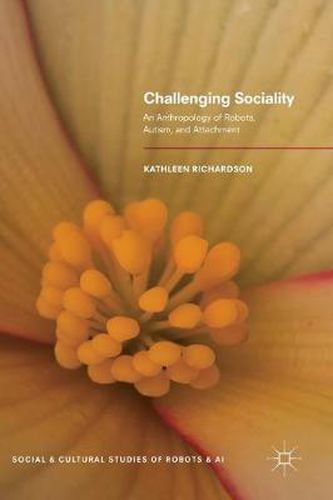Readings Newsletter
Become a Readings Member to make your shopping experience even easier.
Sign in or sign up for free!
You’re not far away from qualifying for FREE standard shipping within Australia
You’ve qualified for FREE standard shipping within Australia
The cart is loading…






This title is printed to order. This book may have been self-published. If so, we cannot guarantee the quality of the content. In the main most books will have gone through the editing process however some may not. We therefore suggest that you be aware of this before ordering this book. If in doubt check either the author or publisher’s details as we are unable to accept any returns unless they are faulty. Please contact us if you have any questions.
This book explores the development of humanoid robots for helping children with autism develop social skills based on fieldwork in the UK and the USA. Robotic scientists propose that robots can therapeutically help children with autism because there is a special affinity between them and mechanical things. This idea is supported by autism experts that claim those with autism have a preference for things over other persons. Autism is also seen as a gendered condition, with men considered less social and therefore more likely to have the condition. The author explores how these experiments in cultivating social skills in children with autism using robots, while focused on a unique subsection, is the model for a new kind of human-thing relationship for wider society across the capitalist world where machines can take on the role of the you in the relational encounter. Moreover, underscoring this is a form of consciousness that arises out of specific forms of attachment styles.
$9.00 standard shipping within Australia
FREE standard shipping within Australia for orders over $100.00
Express & International shipping calculated at checkout
This title is printed to order. This book may have been self-published. If so, we cannot guarantee the quality of the content. In the main most books will have gone through the editing process however some may not. We therefore suggest that you be aware of this before ordering this book. If in doubt check either the author or publisher’s details as we are unable to accept any returns unless they are faulty. Please contact us if you have any questions.
This book explores the development of humanoid robots for helping children with autism develop social skills based on fieldwork in the UK and the USA. Robotic scientists propose that robots can therapeutically help children with autism because there is a special affinity between them and mechanical things. This idea is supported by autism experts that claim those with autism have a preference for things over other persons. Autism is also seen as a gendered condition, with men considered less social and therefore more likely to have the condition. The author explores how these experiments in cultivating social skills in children with autism using robots, while focused on a unique subsection, is the model for a new kind of human-thing relationship for wider society across the capitalist world where machines can take on the role of the you in the relational encounter. Moreover, underscoring this is a form of consciousness that arises out of specific forms of attachment styles.